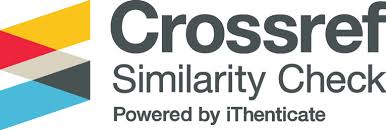ANALISIS SISTEMPPENGENDALIANPINTERN TERHADAP KELANCARANKPENGEMBALIAN KREDIT 0PADA KOPERASI LINGGA ARTHA BANJAR ASEMAN ABIANSEMAL BADUNG
Abstract
Smooth repayment of credit is one thing that greatly affects operational activities and cash flow circulation. So that the implementation of good internal control can affect the smooth return of credit to cooperatives and do not cause large accounts receivable. This research was conducted at the Lingga Artha cooperative located in Banjar Aseman Abiansemal Badung. The number of cooperative employees is 11 people, with the composition of 1 manager, 3 credit department, 1 cashier, 1 savings officer, 5 collectors. The method of analysis used in this research is descriptive method, namely by collecting data and describing and explaining the data and information obtained on the basis of relevant theories to get conclusions. Based on the results of the interview, it can be found that the Lingga Artha Cooperative has not implemented the 5 aspects of internal control properly, this has led to substandard and non-current credit repayments. Besides that, it also affects other aspects of the cooperative's business, which can harm the cooperative itself and especially its members. Of the several cases of credit repayment stagnation, one of which is borrowing large amounts of credit but with guarantees that are not in accordance with credit lending procedures, and not reviewing the borrower in terms of credit risk, namely character, capacity, collateral and condition, in addition to that in terms of Information and communication is needed in disbursement of loans where the cooperative must get as much information as possible about the current condition of the borrower. The separation of responsibilities must also be clarified and the amount of collateral must be adjusted to the size of the loan. Supervision from related parties must also be tightened so as to minimize fraud and negligence of responsibility. Some things that can be done to anticipate negligence in the application of internal control are expected to be able to provide training for cooperatives to understand how important internal control is in running a cooperative business.







